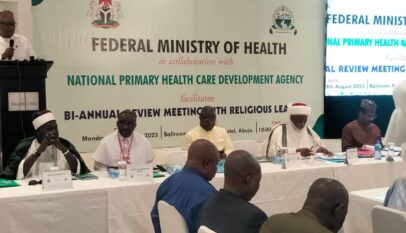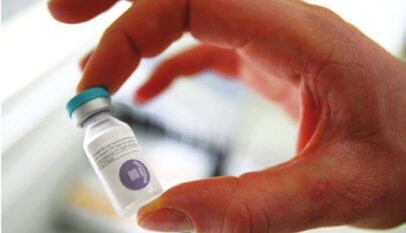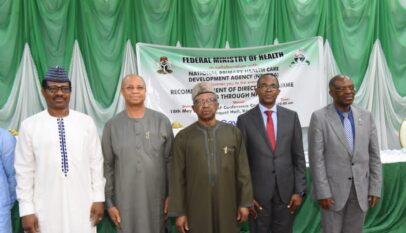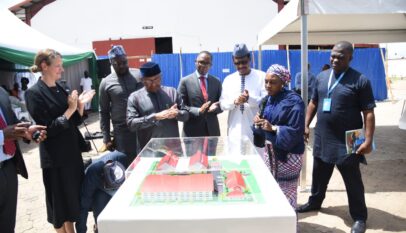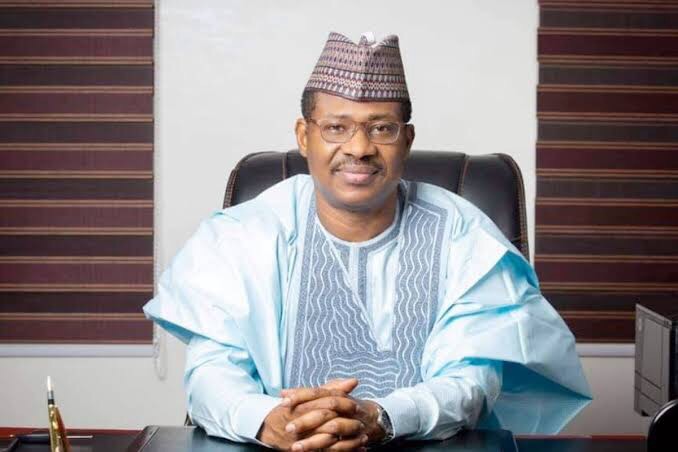
NPHCDA to explore Behavioral Science for Health Care interventions
Omolola Ajobiewe
The National Primary Health Care Development Centre( NPHCDA), said it explores behavioral science approaches and human-centred designs for a more evidence-based interventions to strengthen demand for primary health care services in Nigeria.
The Executive Director NPHCDA, Dr Faisal Shuaib, disclosed on Wednesday, at the Official Close-out Ceremony of the NPHCDA-BMGF Strengthening Demand For PHC Project in Abuja, explained that the project was initiated in 2020 in partnership with the Bill and Melinda Gate Foundation (BMGF) to build on Agency’s existing PHC demand generation strategies, strengthen the capacity of SPHCDBs (including LGAs/HFs), and trusted community influencers to effectively apply modern behavioural science approaches, advocacy, and communications to sustainable PHC demand generation in a covid-impacted world.
Shuaib lamented that demand for PHC services in the country has remained sub-optimal due to reasons ranging between social, cultural and geographical barriers, poor quality of care, and low level of trust in Nigeria’s health system arising from misinformation and disinformation.
He added that the outbreak of COVID-19 in 2020 made the demand for PHC services worse by bringing about social restrictions and heightening public distrust in the health systems, which impacted on the health thinking behaviors of Nigerians.
“As we strove through COVID to recover demand for service using our existing structures and strategies, we are also working closely with the Bill & Melinda Gates Foundation on how we could employ the various science approaches and human center designs for a more evidence-based intervention that could lead to a long term desired changes in the health thinking behaviours of our people.
He however noted that the implementation of the first stage of the project which commenced in 2021 included funding for two years to cover the start-up support in two states: Niger and Gombe, commenced in 2021.
He also commended the Busara team, CCSI and other members of the Consortium for their exemplary leadership in the implementation of the project.
“It is my hope as envisioned in this project that the impact will provide more justifications for institutionalizing behaviourial science in our PHC demand generation strategies from conceptualization to implementation in the future,” he added.
The representative of Bill & Melinda Gates Foundation, Mrs. Katja Schiller Nwator, in her opening remark stated that that by understanding human behaviours including factors such as motivation, decision making and social influence, practitioners can design interventions that are more effective in healthy behaviours and preventing disease.
She said, “during the heights of the pandemic, I believe we all learned the importance of the Primary Health Care systems and the role that role that agencies like the NPHCDA play in ensuring wide spread access to quality health care.
However, we also learned about the behaviours and beliefs that influence some of the barriers and issues preventing people from accessing health care services and the COVID-19 vaccines during this time, such as cultural, religious and social norms, misinformation, disinformation and just wide spread hesitancy.
”Understanding all of these issues was critical in helping the agency – the NPHCDA- and its partners to design interventions to address vaccine hesitancy for instance, to ensure that essential services were still delivered to communities.”
Meanwhile, the Director of Community Health Services, NPHCDA, Dr Usman Adamu, disclosed that through the project, awareness has been raised about the importance of accessing primary healthcare services and educate communities on the benefits of preventive healthcare.
He said: “We have also been able to provide training and capacity-building programs for healthcare providers and traditional leaders to improve the quality of services they offer”.
“This has resulted in a significant increase in the number of people accessing primary healthcare services, particularly in Niger and Gombe States”.
“The success of this project would not have been possible without the support and collaboration of our partners, particularly the Bill and Melinda Gates Foundation”, he added.



